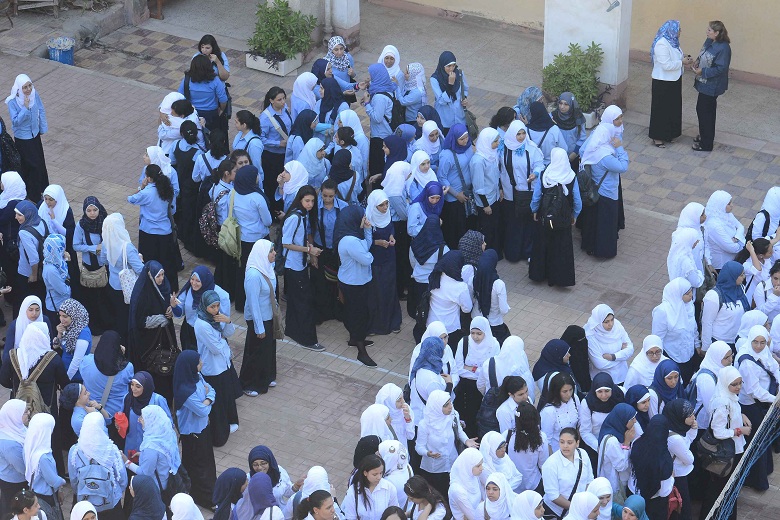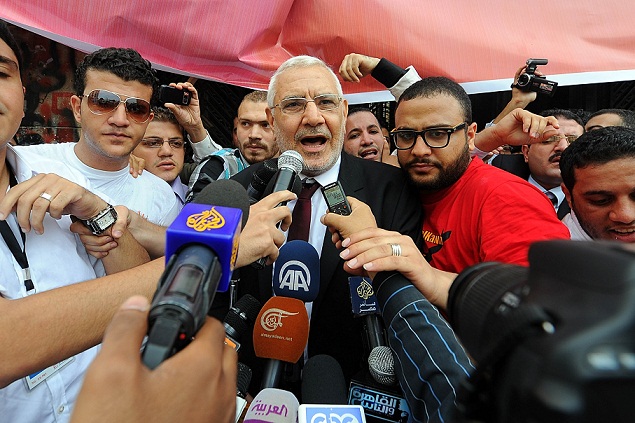The fact that the United States was forced to assert that Israel should consider joining the Nuclear Non-Proliferation Treaty is tantamount to a victory for the Islamic regime in Tehran. Ever since the Iranian nuclear crisis emerged about seven years ago, the Iranian leadership has accused the international community of closing its eyes to Israel’s nuclear arsenal and focusing instead on what Iran’s leaders persistently defend as their country’s peaceful nuclear program.
It was of course difficult for US leaders to mention Israel in the NPT Review Conference’s final declaration, since this was a de facto confession that Tel Aviv possessed nuclear weapons — an issue hitherto officially denied by successive Israeli leaders. Why should the Islamic leaders regard it as a victory if Israel acknowledges that it does indeed possess nuclear warheads? The answer is provided by Iranian President Mahmoud Ahmadinejad: the Islamic regime not only denies fiercely that it intends to build a nuclear weapon, it has also proposed that the Middle East be a nuclear weapons-free zone.
During his meeting with the Turkish and Brazilian presidents in Tehran last June, Ahmadinejad stated publicly to the international media in the name of the Islamic regime, "let us make the Middle East a nuclear weapons-free zone." The Iranian media then reported that Iran’s "revolutionary proposal has astonished the Zionist regime and its principal supporter the US." Any progress in that direction would naturally be welcomed by Tehran as a "clear indication that it is on the right and peaceful track". If Israel does not acknowledge that it possesses nuclear warheads, the Iranian "grand proposal to bring peace and stability to the region" would stay on paper.
More importantly, as Ahmadinejad added, "the starting point for any meaningful beginning toward making the region a nuclear weapons-free zone is all the states in the region, including the Zionist state, joining the NPT and working with it sincerely and honestly, much as Islamic Iran has done." In other words, it is not only Ahmadinejad and other Iranian leaders who have benefited from Israel’s refusal to join the NPT. The Islamic regime is cooperating with the NPT and yet is being punished by the 5+1. At the same time, Israel possesses nuclear weapons and refuses to join the NPT. Under these circumstances, it is very difficult for anyone to criticize Iran’s nuclear program.
The latter has become a hotly debated political issue. The hardliners have successfully managed to turn the nuclear question into a nationalistic-political issue. The reformists have continuously been accused of giving in to the wishes of the US and the other western powers by accepting, when they were in power, a two-year voluntary freeze on the country’s uranium enrichment program. Ahmadinejad accused the country’s nuclear negotiating team that talked with the West under reformist President Mohamad Khatami of "treason" for halting the enrichment program for two years. In contrast to the "traitors", he has pursued the nuclear program with great stamina and determination.
At least for some Iranians, the country’s nuclear program is far more than a dispute with the West. Under Ahmadinejad, the nuclear issue has been turned into a struggle with the "arrogant powers" who want to prevent Islamic Iran from acquiring advanced nuclear technology. In other words, the nuclear dispute with the West is not over the potential threat that Iran will acquire nuclear weapons but rather over the West’s unjust treatment of "an independent Islamic state that has dared to stand against [the West’s] unjust and aggressive behavior".
Israel and its nuclear arsenal are frequently cited by the Iranian leaders as a clear example of the West’s hypocrisy over the nuclear issue. While the West has objected neither to Israel’s nuclear warheads nor to its refusal to join the NPT, it has punished Iran — which according to the West’s own intelligence sources is many years away from nuclear weapons capability and which has cooperated fully with the International Atomic Energy Agency.
It is against this backdrop that any new Israeli response to the NPT demand must be perceived from the Iranian perspective. While the Iranian leadership took credit for including Israel in the final declaration, in the long run, Israeli cooperation with the NPT actually pulls the rug out from under Tehran’s feet. After all, as long as the state of Israel refuses to cooperate with the NPT, Iranian leaders can accuse the West, the IAEA and the 5+1 of approaching Iran unjustly and with bias as it confronts "the world’s arrogant powers". The Iranian leadership will continue to turn the nuclear issue into a "holy crusade opposing western encroachment against Islam".
On the other hand, Israel’s cooperation with international bodies over its nuclear program as recommended by the Review Conference would make it harder for Iran to cite international injustice against the only true Islamic state. Politics makes strange bedfellows; it is not inconceivable that Israel’s joining the NPT would force Iran to reconsider its nuclear program and revise its approach toward the IAEA.
Sadegh Zibakalam is professor of political science at Tehran University. This commentary is published by DAILY NEWS EGYPT in collaboration with (bitterlemons-international.org).

